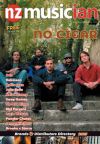Finding Your Voice: Developing Objective Awareness
Finding Your Voice: Developing Objective Awareness
We’re often way too negative, judgemental and overly critical of our voices and creative output. So, this column is about objective awareness – getting macro-cosmological and real.
Many singers/creatives view themselves as exceptional, not acoustically engineered instruments, designed and constructed JUST like everybody else. We take things WAY too personally.
Very infrequently are we the best judge of our performance or writing – ask any sensitive audience or good editor. We’ll agonise over a mistake an audience was oblivious to, or, an editor notices typos of changes in tense we hadn’t picked up on. However, we shouldn’t surrender judgement entirely to other people’s feedback or opinions. Rather, finely tune your self-checking mechanisms of acute sensory perception. Become curious, intrigued, radically experimental and scientific.
Saying, or thinking, we sound crap doesn’t specify the cause of that crappiness or find solutions. Sometimes, it’s not even true! Feeling not good enough doesn’t define what good is or improve our singing. Initially, vocal coaching helps decipher and diagnose actual problems. Sooner or later though, we have to guide ourselves and discern right from wrong.
When you listen to your voice, do you acknowledge how beautiful it is? Or instead focus on mistakes and ugliness? Listen for faults – you’ll find faults. Listen for good qualities, and you’ll find them. Wine appreciation groups savour and enjoy. We can appreciate our voices too – through understanding and sensitivity rather than criticism and ignorant superstition.
Deciding we don’t have good voices is the perfect excuse NOT to deal with problems or succeed. Some people become falsely overconfident to compensate for feeling inadequate. Either way, accurately assessing ourselves with realism and compassion, is more fun than shameful self-hating. Understanding how systems work, turns the internalised silencing and ridiculing critic, into an enthusiastic, encouraging innovator and brave adventurer.
Staying in destructive, but familiar, behaviour is like the abused child who wails with resistance when taken from the arms of its violent mother. Though safe alternatives exist, abuse is all its ever known. We’ve normalised treating our voices abusively, and old habits die hard. New/good techniques may feel weird.
One student said she couldn’t “push to get high notes anymore,” post-surgery. Thank god! Just because you’ve got away with it for years doesn’t mean it’s right. Injury and illness are great educators but we have to register what it feels like to get it right. Sometimes we get too scared of doing it wrong to try new tools. We can’t feel the consequences of good technique if we’re still pushing or too breathy.
Our voices can be trusted just as the laws of physics and acoustic engineering can. Being responsible for cause and effect builds trust because you know why things are happening. A student practising ng said, “I can’t control the ends of notes. I only get rid of the wobble when I place the sound above it.” Exactly! She was doing it right, but not acknowledging that. Supposedly insignificant indicators were being ignored.
Forward placement won’t give you nose bleeds, but its subtle vibrations must be recognised and registered. Despite the damage of using bad technique, it still seems illogical to adopt head over throat for control. Our bodies know best – we must get quiet enough to hear what they’re saying.
Removing ego and personal bias is immensely liberating. We’re only truly aware of ourselves when we step back and sensitively observe. A patient is observed to correctly diagnose… as House does. Look at all mitigating factors affecting your voice. (Are you fatigued? Grieving? Apprehensive about an impending life choice? Still recovering from injury?) Be scientific and non-judgmental rather than assumptive.
Panic and fear can scream so loudly in our ears that we cant listen accurately. Because we lack control of our sound, we numb ourselves to organic indicators. Fine-tuning perceptive awareness helps open and sensitise parts of the body we didn’t even know existed – changing tone by putting it in the dangdest places – seriously!
Put your sensory receptors through boot camp. Firstly, lie on your back and move your organic/physical awareness very slowly up the body like an MRI scan. How open you can make each inch of flesh? Tense it first to help focus. Secondly, register your kinesthetic response to music as you listen: are you clenching your jaw? Tapping feet? Eyes tightly shut? Frowning? Listen to yourself and other singers deeply, with all eight senses (use: organic, kinetic, intuitive and synesthesic).
Thirdly, focus on one tool at a time and give it an effort level to hear/feel how much is too much or too little. This is the only way to discern exactly whats working. Take lab notes. For example, it’s crazy to expect a speedy bounce back from voice loss or surgery without a good recovery plan. The ego however, doesn’t want to relinquish control. Essentially, the throat will always be in charge until we deliberately lift the sound into the forehead and let the sinus cavities take control. You never know until you try…
Heightening our powers of sensory perception provides us with a great way of assessing our progress. Rather than saying, “My voice sounds horrible,” we find out what exactly we don’t like about the sound, colour and feeling of the voice. Discerning specifically what’s present or absent so we can do the work… run some diagnostics on it… heal… succeed.
Remember: singing makes us physically honest and songwriting makes us emotionally honest. Skills!
Twitter: @BraveCaitlin

